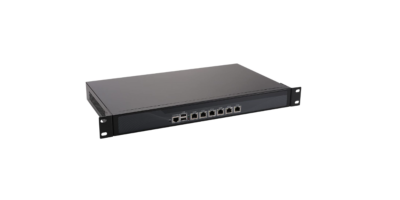For small healthcare providers, ensuring compliance with the Health Insurance Portability and Accountability Act (HIPAA) is both a legal necessity and a moral responsibility. Protecting patient data, securing records, and maintaining trust is crucial for success in today’s healthcare landscape. However, many small practices lack the resources of larger organizations, making HIPAA compliance feel overwhelming. The good news? With the right strategies, small providers can stay compliant, avoid penalties, and build patient confidence. In this blog, we’ll share five essential HIPAA compliance tips that will help small healthcare organizations protect patient information, reduce risks, and maintain regulatory compliance.
Why HIPAA Compliance Matters
HIPAA was enacted in 1996 to establish national standards for protecting sensitive patient health information. Every healthcare provider – large or small – must follow HIPAA rules to safeguard data privacy and security.
Failure to comply can result in:
- Costly fines ranging from thousands to millions of dollars
- Legal action against your practice
- Loss of patient trust and damage to your reputation
- Potential disruptions in operations due to investigations or breaches
For small healthcare providers, the risks are particularly significant, as even a minor violation could be financially devastating. By following proven HIPAA compliance practices, providers can operate confidently while ensuring patient safety and privacy.
1. Conduct Regular Risk Assessments
One of the most important HIPAA compliance tips is to perform regular risk assessments. A security risk assessment (SRA) identifies vulnerabilities in your systems, processes, and policies that could expose patient health information.
Steps to conduct an effective risk assessment:
- Evaluate how patient data is stored, accessed, and transmitted
- Identify risks related to outdated systems, weak passwords, or unsecured devices
- Review third-party vendor access to sensitive information
- Document findings and create a mitigation plan
Regular assessments help small practices uncover weak points before they become violations. Many small providers use managed IT services or compliance consultants to simplify this process.
2. Train Staff on HIPAA Compliance
Human error is one of the leading causes of HIPAA violations. Whether it’s an employee leaving a screen unlocked, sending an email to the wrong recipient, or sharing patient information without authorization, mistakes can be costly.
That’s why comprehensive staff training is essential. Small healthcare providers should ensure every employee, from front desk staff to clinical professionals, understands HIPAA requirements.
Key training areas include:
- Understanding the Privacy Rule and Security Rule
- Proper handling of electronic health records (EHRs)
- Identifying phishing emails and cybersecurity threats
- Maintaining physical safeguards, such as locked file cabinets
- Responding to a suspected breach
Ongoing refresher courses ensure compliance remains top of mind and help foster a culture of security and accountability.
3. Secure Electronic Health Records (EHRs)
The shift to digital health records has improved efficiency but also increased security risks. Cyberattacks targeting healthcare providers are rising, and small practices are not immune. Securing EHR systems is a critical step in maintaining HIPAA compliance.
Best practices for securing EHRs include:
- Encrypting all stored and transmitted data
- Using multi-factor authentication (MFA) for access
- Limiting system access to authorized personnel only
- Implementing automatic log-off features after inactivity
- Regularly updating and patching software to prevent vulnerabilities
By adopting these safeguards, small healthcare providers can significantly reduce the risk of unauthorized access to patient records.
4. Establish Clear Policies and Procedures
Compliance isn’t just about technology – it’s also about having well-defined policies and procedures in place. These serve as a roadmap for staff and provide auditors with proof that your organization is committed to compliance.
Policies should address areas such as:
- Data access controls and user permissions
- Procedures for reporting and responding to breaches
- Guidelines for secure data sharing with third-party vendors
- Standards for physical security in offices and storage areas
- Proper disposal of old records and electronic devices
Clear documentation not only helps staff understand expectations but also demonstrates to regulators that your practice takes HIPAA compliance seriously.
5. Partner with a Compliance and IT Expert
For small healthcare providers, maintaining compliance can be challenging without dedicated compliance officers or IT departments. Partnering with a compliance consultant or managed IT provider can ease the burden.
These experts can:
- Conduct thorough security risk assessments
- Provide tailored HIPAA training for staff
- Monitor IT systems for suspicious activity
- Ensure data backup and disaster recovery plans are in place
- Keep you updated on regulatory changes
Outsourcing compliance support allows small practices to focus on patient care while ensuring they remain fully compliant with HIPAA requirements.
Common Mistakes Small Providers Make
Even with the best intentions, small healthcare providers often make errors that put them at risk. Common mistakes include:
- Using unsecured email to share patient information
- Failing to update passwords regularly
- Not backing up patient data securely
- Neglecting to monitor employee access logs
- Skipping annual risk assessments
Avoiding these pitfalls can save your practice from costly fines and reputational harm.
Conclusion
HIPAA compliance may seem daunting, especially for small healthcare providers with limited resources. However, by following these five essential HIPAA compliance tips – conducting risk assessments, training staff, securing EHRs, establishing clear policies, and partnering with experts – you can protect patient data, reduce risks, and operate with confidence.
Compliance is not just about avoiding fines; it’s about safeguarding your patients’ trust and building a strong foundation for your practice’s success.
How MedicalITG Can Help
At MedicalITG, we specialize in HIPAA compliance services designed to protect patient data and simplify regulatory requirements for healthcare providers. Our experts can help you conduct risk assessments, implement IT safeguards, and ensure full compliance with HIPAA standards. Call us today at (877) 220-8774 or email us at info@medicalitg.com to learn how we can help your organization stay secure and compliant.










